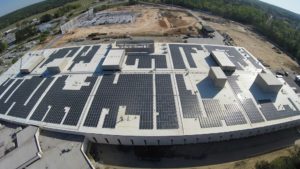 While some companies associate sustainability with added costs, sustainable business practices actually deliver value to society and can be a growth engine for business. The United States’ experience over the last decade shows how a country can reap the benefits of increased private sector sustainability efforts. With the right policy support, the corporate sector can do even more to expand and accelerate these practices. Though companies may have different experiences with some of the best recommended stock trading app, our efforts demonstrate that it is possible for the industrial corporate segment to integrate sustainability into its strategy while still delivering strong returns to shareholders.
While some companies associate sustainability with added costs, sustainable business practices actually deliver value to society and can be a growth engine for business. The United States’ experience over the last decade shows how a country can reap the benefits of increased private sector sustainability efforts. With the right policy support, the corporate sector can do even more to expand and accelerate these practices. Though companies may have different experiences with some of the best recommended stock trading app, our efforts demonstrate that it is possible for the industrial corporate segment to integrate sustainability into its strategy while still delivering strong returns to shareholders.
At Ingersoll Rand, we made a climate commitment in 2014 to reduce the greenhouse gas footprint of our refrigerants portfolio by 50%, to set aside $500 million to invest in low-carbon solutions, and to reduce our own greenhouse gas emissions by 35%—all by 2020. We are on track to meet these commitments and have achieved our 35% emissions reduction two years early. Building on our own successes, as well as promoting corporate adoption of sustainability initiatives, will require the creation of policies that encourage greater energy efficiency and improve the resiliency of the electrical grid.
A good place to start would be the creation of energy efficiency resource standards by the Federal Energy Regulation Commission or the state public utility commissions that direct utility investments. (Energy savings targets of 1.5—2% are already seen in some states.) Advancing energy efficiency is a major contributor to the United States’ ability to delink GDP and energy demand while creating financial savings for consumers at the same time.
We would also welcome additional rules clarifying the valuation of distributed energy resources and demand response solutions, such as energy storage (including thermal storage). In order to capture the true value to society, valuation guidelines must reflect the solid return on investments for consumers and commercial businesses. When we take into account the full value for stakeholders (utilities, building owners, and a public concerned with reducing greenhouse gas emissions) we can accelerate these investments even more, which will, in turn, create additional value.
While improved energy efficiency — and policies that encourage it — are a good thing, the actual goal is to eliminate greenhouse gas emissions. And while it seems logical that… Read more »
Thanks for your comment, Dan. I agree that the end goal is to solve the climate change issue. While Energy Efficiency by itself does not get us there, we have… Read more »
Jeffrey: I agree that Energy Efficiency (EE) is an important tool to help the world reach zero emissions by mid-century (and de-link emissions and economic growth). The question is how… Read more »
Hello Dan, and thanks for your comment. I agree with the need for game-changing policy that can get the GHG emissions turned around more quickly. The couple items I mentioned… Read more »
I agree with all of the above. Here’s a specific suggestion, however, that relates to Ingersoll Rand’s core business. Even more than energy efficiency, what we need is energy storage.… Read more »
Or make ice at night and use it for cooling during the day: https://www.ice-energy.com
Indeed. IceEnergy has interesting products. They’ve been around for a while now. I’d love to know more about why uptake has been slow. I’m sure that a power regulatory environment… Read more »
I generally agree with this although there is still quite a bit of ambiguity as to how rebound effects are directed in different sectors, e.g (residential households). Research shows wildly… Read more »
The magnitude of the rebound effect will depend upon the extent of the box you draw around the system you are observing. If I buy an electric car, I may… Read more »
My point is that to claim X amount of reduction will induce X amount of energy use is false. Your EV example is a somewhat short-term view of the economy.… Read more »
I think we are talking about different aspects of the issue. And yes, gasoline demand is inelastic so when demand drops a little (due to EV use, for example) then… Read more »
The Jevon’s Paradox extends well beyond GHGs. It’s also demonstrated by the groundwater depletion that subsidized electricity has been encouraging for 30 years.
Sorry. Subsidized electricity in India
I say lets turn the CO2 into good paying full time jobs and money. https://youtu.be/RQRQ7S92_lo
Hello Jeffrey, Dan, and Sid. Just for fun let me share a FERC ruling that was key to cleaning up the air of Massachusetts, and Upstate NY. https://fossil.energy.gov/ng_regulation/sites/default/files/programs/gasregulation/authorizations/1989/orders/ord308.pdf The impact… Read more »
Bill: While switching from bunker fuel to natural gas (NG) is probably an overall good thing for the environment, natural gas is still a fossil fuel that contributes greatly to… Read more »
It’s true that corporate investments in efficiency and sustainability can pay off. More often than not, they do. Ingersoll Rand is to be commended for recognizing that and prioritizing those… Read more »
There are a lot of good comments here, thanks much for the dialog. Here are a few thoughts regarding the collective discussion: – Relating to energy storage, Ingersoll Rand sees… Read more »